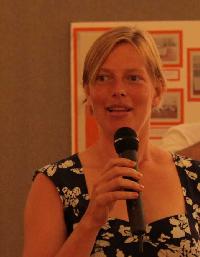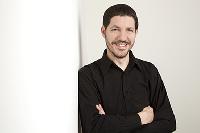| Pages in topic: [1 2] > | Poll: How did you choose your field(s) of expertise? Thread poster: ProZ.com Staff
|
|---|
This forum topic is for the discussion of the poll question "How did you choose your field(s) of expertise?".
This poll was originally submitted by Annett Hieber. View the poll results »
| | | | neilmac
Spain
Local time: 23:59
Spanish to English
+ ...
I had them thrust upon me. Personally, I usually prefer not to be pinned down, and like to spread my options as wide as possible. However, after years working in certain areas, you tend to become perceived as "specialising" in at least some of them.
I'm not sure if the translator always needs to have in-depth knowledge of the subject matter anyway, for example I have just revised a (gruelling) text in a field I know absolutely nothing about (data mining). The client knows this but ... See more I had them thrust upon me. Personally, I usually prefer not to be pinned down, and like to spread my options as wide as possible. However, after years working in certain areas, you tend to become perceived as "specialising" in at least some of them.
I'm not sure if the translator always needs to have in-depth knowledge of the subject matter anyway, for example I have just revised a (gruelling) text in a field I know absolutely nothing about (data mining). The client knows this but still wanted me to do it (we've worked together before), and.... "the customer is always right"
I know some colleagues will strongly disagree (for example, translators with a medical degree might view me as an interfering upstart if I dared stick my oar into their troubled waters). However, I believe that sometimes, especially if the text is aimed at a wider audience rather than experts, I think it is better to have someone who doesn't know much about the field of the translation content per se, because those in the know will take things for granted and may fail to explain clearly in terms that a lay person can understand.
PS: Education, previous life and work experience and personal interests obviously all play a part in the process, but my point is that I didn't really "choose" any specialist fields at the outset, just sort of ended up drifting into them - for example, nowadays I do a lot of Bio work and scientific research, when I was never any good at science or math as a student, or indeed anything other than language/s.
I am still usually willing to "have a bash" at most things if the conditions are right...
[Edited at 2012-04-25 17:04 GMT] ▲ Collapse
| | | | Chun Un 
Macau
Member (2007)
English to Chinese
+ ...
| Education and previous career | Apr 25, 2012 |
My undergraduate degree is in biology and I spent a few years working in the field. While I decided to pursue a different career path, the subject still interests me to a certain degree and generally speaking I do have a more in-depth knowledge than an average lay person in this field. So naturally, I have 'become' specialised in anything related to the life sciences, which seems to have worked out for me in starting out as a freelance translator.
[Edited at 2012-04-25 09:35 GMT]
| | | | Patricia Charnet
United Kingdom
Local time: 22:59
Member (2009)
English to French
Medicine / Pharmaceuticals : mother was a theatre nurse, and ex was a pharmaceutical physician
Law: mother studied it too and share her liking with me when little
I guess it would be family influence I did Law, Medicine and Geology when I graduated - Geology was my own choice I did Law, Medicine and Geology when I graduated - Geology was my own choice
| | |
|
|
|
avsie (X) 
Local time: 23:59
English to French
+ ...
For me it's a combination of Education, previous work experience and personal interests. And a bit by accident too.
| | | | Thayenga 
Germany
Local time: 23:59
Member (2009)
English to German
+ ...
| A combination | Apr 25, 2012 |
Previous career, education, personal interests are the main factors.
Another field came about by accident to satisfy a client's demand.
| | | | | A combination | Apr 25, 2012 |
I started translating a bit by accident, but then my education, previous career, life experience and personal interests came into play…
| | | | Julian Holmes 
Japan
Local time: 06:59
Member (2011)
Japanese to English
was not on the list so I voted "By accident".
It happened and I just happened to be there. 
Happy fatalistic translating!
| | |
|
|
|
Marjolein Snippe 
Netherlands
Local time: 23:59
Member (2012)
English to Dutch
+ ...
| previous career | Apr 25, 2012 |
Which (if all is well) implies interest too. And education (usually - certainly in my case).
I agree specialist knowledge is not required for all translations, sometimes even very specialist ones, but I think it is very helpful and sometimes a necessity when translating other specialist (eg medical) texts.
| | | | inkweaver 
Germany
Local time: 23:59
French to German
+ ...
A combination of education, work experience and personal interests.
| | | | Robert Forstag 
United States
Local time: 17:59
Spanish to English
+ ...
| Combination of experience, interests, and market demand | Apr 25, 2012 |
I would hardly have much of a career as a translator if I limited myself to material within the field I worked in for some 20 years (mental health). Personal interests have broadened my horizons to the social sciences, journalism, and marketing. But, in my view, a translator has to have a certain comfort level in at least one of the "big three" areas where there tends to be a lot of work available: legal, business, and medical. I have a fair competence in the first two of these areas, and this ... See more I would hardly have much of a career as a translator if I limited myself to material within the field I worked in for some 20 years (mental health). Personal interests have broadened my horizons to the social sciences, journalism, and marketing. But, in my view, a translator has to have a certain comfort level in at least one of the "big three" areas where there tends to be a lot of work available: legal, business, and medical. I have a fair competence in the first two of these areas, and this is what allows me to function as a full-time freelancer.
It needs to be acknowledged that many translators "learn on the job." This has certainly been the case for me, for if I had started by accepting only material that I felt completely comfortable with, I never would have been able to earn enough to sustain myself on a full-time basis. This makes things difficult at first (sometimes painfully so) but one learns over time and acquires a comfort level in various domains that were previously unknown.
I also agree with Neil that one can, in certain instances, do a good job of translating a given document without being an expert in the field in question.
[Edited at 2012-04-25 13:48 GMT] ▲ Collapse
| | | | Ty Kendall 
United Kingdom
Local time: 22:59
Hebrew to English
My own degree is in teaching and linguistics, which comes in handy for translation as far as the process is concerned but not a speciality.
Fortunately, I also spent a great deal of my time at uni helping Greek law students with their essays (being Greeks....I practically wrote some of them, rather than the "edit" I offered), so this was also helpful now in legal translations.
I'm not comfortable at all with medical translations, so I tend to avoid these, unless they are very generic... See more My own degree is in teaching and linguistics, which comes in handy for translation as far as the process is concerned but not a speciality.
Fortunately, I also spent a great deal of my time at uni helping Greek law students with their essays (being Greeks....I practically wrote some of them, rather than the "edit" I offered), so this was also helpful now in legal translations.
I'm not comfortable at all with medical translations, so I tend to avoid these, unless they are very generic, layperson type level terminology....but I don't believe you need to have a law degree, a medical degree etc, you just have to know what you're talking about.
Being certified to high heaven is just overkill.
In addition, I think it's important to enjoy any speciality you choose, so personal interest should be the main criterion in choosing a field of expertise in my opinion. ▲ Collapse
| | |
|
|
|
Wolfgang Vogt 
Argentina
Local time: 18:59
English to German
+ ...
Haven't found yet my field(s) of expertise... any suggestions?
| | | | Erik Matson 
Thailand
Local time: 04:59
English to Norwegian
+ ...
| Answer: Many of the above... | Apr 25, 2012 |
Multiple specialties, based on all of the following:
- To meet the demands of clients
| | | | Anthony Baldwin 
United States
Local time: 17:59
Portuguese to English
+ ...
| once upon a time | Apr 25, 2012 |
I was a school teacher (English and Spanish), but left teaching, exhausted, broke, discouraged...
It was shortly thereafter that I began to work as a translator and interpreter, and two things kind of funneled me into two domains:
1 - There was a demand for freelance Portuguese/English court interpreting in my State (CT, USA), and a very short supply. Oddly, after completing a B.A. in English, I had taken the L.S.A.T. and scored very well (97th percentile), but had never purs... See more I was a school teacher (English and Spanish), but left teaching, exhausted, broke, discouraged...
It was shortly thereafter that I began to work as a translator and interpreter, and two things kind of funneled me into two domains:
1 - There was a demand for freelance Portuguese/English court interpreting in my State (CT, USA), and a very short supply. Oddly, after completing a B.A. in English, I had taken the L.S.A.T. and scored very well (97th percentile), but had never pursued law school.
2 - I am diabetic, and the very first translation job I was offered and took, from right here on proz.com, was for translation of clinical protocol materials for a (then) experimental delivery method for insulin. I continue to work with that same client to this day, and the majority of their projects are related to clinical trials. Now, I had originally gone to college with a scholarship to study "sports medicine and kinesiology", and did complete some 12 hours of anatomy and physiology, plus studied nutrition, and other related fields, and, being diabetic and an athlete, have studied and learned a great deal about health. So, although I am no physician, I would venture that my health knowledge is well beyond average. (Working in the field has certainly made it so, if nothing else).
Since then, I have worked in the medical and legal fields.
I'm not a lawyer, nor a doctor, of course, and if something is over my head, I'm not afraid to say so, but my graduate degree work was in library and information sciences, and I have some pretty sharp research skills, too, so I hold my own pretty well. At this juncture, I have been interpreting in courts and depositions for 7 years, and medical consultations, etc.
I specialize in a third area, also without any formal study: IT, software localization, internet and computer technologies.
This is a matter of personal interest. I write software, develop and design websites, as a bit of a hobby, have contributed to various free/open source software projects, and even released a few useful programs of my own.
I even have fun "translating" (we call it "porting", generally, among the tech geek crowd) programs from one computer language to another. Fun stuff!
So, I have three areas of specialization, all of which I sort of tripped into rather haphazardly.
Needless to say, I know a lot more about all of them, now, than I did when I was starting.
That's one of the great things about this job: You are always learning more!
[Edited at 2012-04-25 18:17 GMT]
[Edited at 2012-04-25 18:19 GMT] ▲ Collapse
| | | | | Pages in topic: [1 2] > | To report site rules violations or get help, contact a site moderator: You can also contact site staff by submitting a support request » Poll: How did you choose your field(s) of expertise? | Trados Studio 2022 Freelance | The leading translation software used by over 270,000 translators.
Designed with your feedback in mind, Trados Studio 2022 delivers an unrivalled, powerful desktop
and cloud solution, empowering you to work in the most efficient and cost-effective way.
More info » |
| | Anycount & Translation Office 3000 | Translation Office 3000
Translation Office 3000 is an advanced accounting tool for freelance translators and small agencies. TO3000 easily and seamlessly integrates with the business life of professional freelance translators.
More info » |
|
| | | | X Sign in to your ProZ.com account... | | | | | |

















